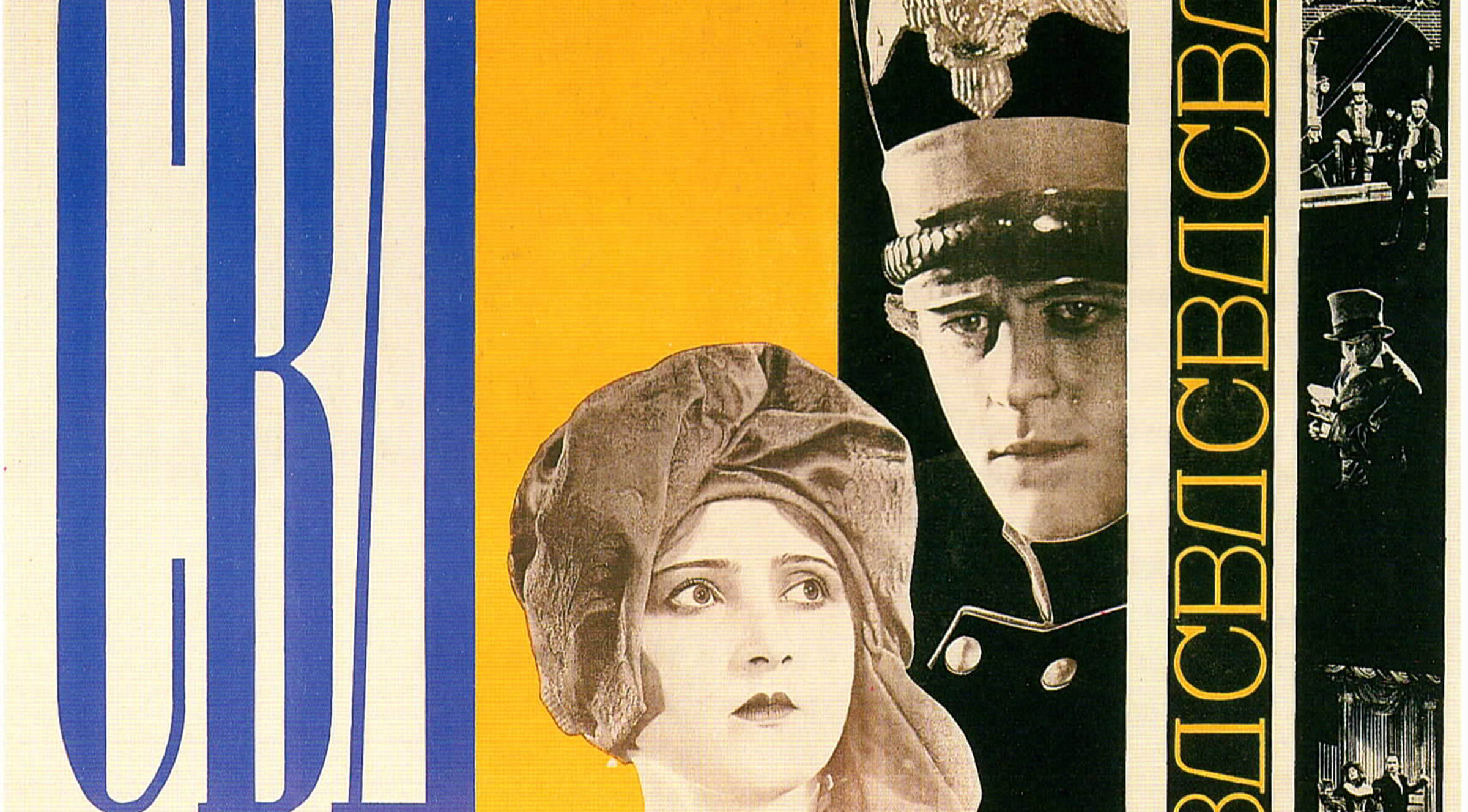This historical reprint was published in conjunction with the screening of The Overcoat (Shinel) at SFSFF 2012
We organized FEKS. I was then sixteen. Although we had absolutely no material means, we decided to mount a production. Serge, the talented circus performer, together with a few cabaret artists and some amateurs who had come from somewhere or other, threw themselves into our projects. Our first production, Gogol’s Marriage, was extremely bizarre, for our own period was violently reflected in it. The play ended with Gogol himself dying in despair upon the stage. It was a case of trying to demolish all the usual theatrical forms and to find others, which could convey the intense sentiment of the new life. Unless this last point is recognized, our creations of that period would become incomprehensible. All these experiments, all these quests for new forms came because we had an intense feeling of an extraordinary renewal of life. We felt profoundly the impossibility of translating this sensation of the marvel and the importance of events through the means offered by the art of the past, which to our eyes appeared dreadfully academic and naturalist. Thus, in our production of Marriage, a preponderant place was accorded to rhythm, because the novelty of things was initially felt not in themes not in characters, but in rhythm. Art had changed rhythm. This was extremely interesting, because there was a sort of contraction it; and that is why all comparisons made between the avant-garde movements of the West and ours seem to me to be false, and not merely in the response of the conditions of our life. What we were doing then we were doing in the cold and famine of a devastated country. The conditions of life were very hard. The State, occupied with a full-scale civil war, was undergoing enormous difficulties. Yet the dominant sentiment was the affirmation of life. The young artists felt life in all its richness and color, and artistic forms seemed naturally to take on the artistic forms of a great popular carnival. In the middle of every kind of privation a sort of fair was going on. The young artists bore the common fate gaily, so fine did the time in which they lived appear to them. If this atmosphere is forgotten or neglected, then the art of those times remains incomprehensible.
Translation by Irene Koryutukov

